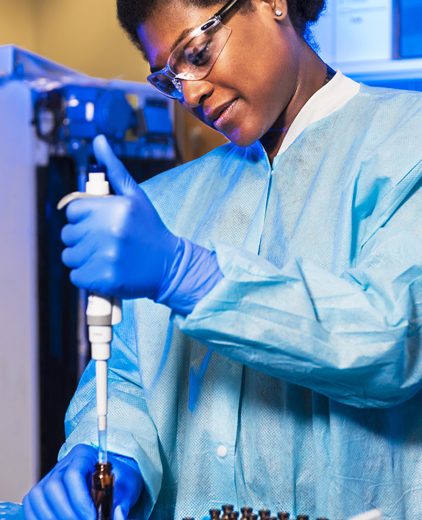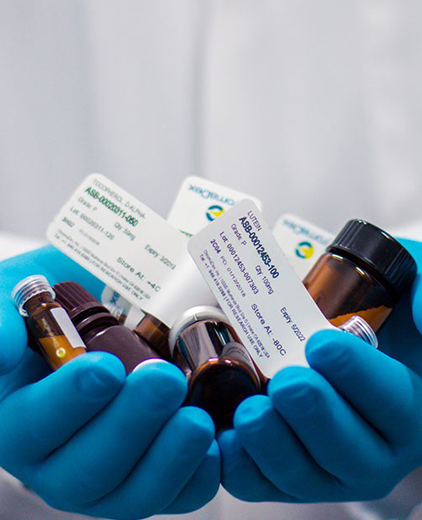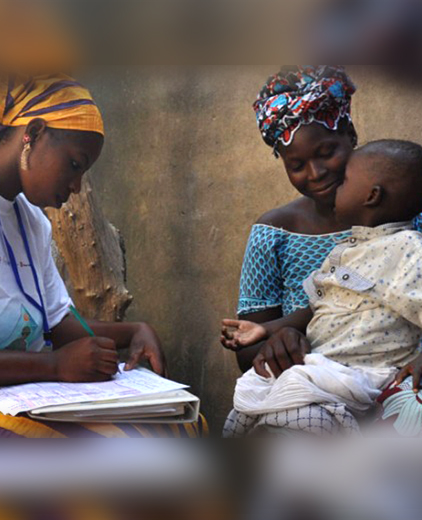Departments

Department of Administration
The department manages the registry, transport, stores and inventory unit of the organisation.
- Handles the day-to-day administrative work of the Board under the direction of the Permanent Secretary.
- Coordinate staff recruitment, transfers/postings, promotion, discipline, retirement, and welfare.
Department of Disease Control Services
The department is responsible for protecting the health of the communities through evidence- based prevention, integrated disease surveillance and response activities. In collaboration with other stakeholders, it manages infectious disease outbreaks in the State.
- Planning, coordinating, tracking and control of epidemics from communities in collaboration with other key stakeholders.
- Coordinating sentinel surveillance systems and provision of technical support to LGAs on disease surveillance for control of diseases of public health importance.
- Implementation of HIV/AIDS; Malaria; Non-Communicable Diseases (NCD); Neglected Tropical Diseases (NTD); Tuberculosis and Leprosy (TBL) programs in collaboration with relevant stakeholders in the health facilities and communities in all LGA's.
- Coordinating the capacity building of Health Care Workers (HCWs) on communicable and non-communicable diseases.
- Contact tracing of emerging and re-emerging infectious diseases such as HIV/AIDS, TB and Leprosy.


Department of Environmental and Occupational Health
The department promotes the wellbeing of individuals and communities through protection from health risk, and promotion of healthy lifestyle and environment.
- Oversees the implementation of the State Public Health Law of 1999 and other extant environmental & occupational health laws and policies.
- Supervises and monitors the implementation of environmental and occupational health activities/programmes.
- Coordinates the training and capacity building of Environmental Health officers in line with the Ward Minimum Health Care Package.
- Coordinates the implementation of environmental impact assessment.
- Collaborate with relevant MDAs in the certification and registration of vector and pest control establishments in the LGA's.
Department of Finance and Accounts
The department is saddled with the responsibility of maintaining transparent accounts records.
- Maintains effective financial & accounting control systems.
- Manages all funds and treasuries of the Board.
- Make payments for goods and services following due process.
- Prepares management reports on financial activities.


Department of Planning, Research and Statistics
The department serves as the ICT hub and manages the data repository of the Board. The Board relies on quality data for evidence based decision making, allocative and technical efficiency.
- Coordinates annual, mediun and longterm plans/budget for the Board.
- Monitors and evaluates programme implementation and the PHC components of State Strategic Development Plan.
- Serves as the entry point between the RSPHCMB and MDAs.
- Generates annual report on PHC for the RSPHCMB.
- Conducts and coordinates health research, surveys and operational research.
Department of Medical Services
The department maintains the health facilities and continually improves the services rendered in the health facilities. This is achieved through supervision, capacity building, equitable distribution of Human Resources for Health with the support of partners.
- Supervises the administrative functions of the Medical Officers of Health (MOsH) /LGA Health Authorities.
- Supervises the development and maintenance of PHC infrastructure.
- Coordinates the planning and implementation of Learning and Professional Development interventions for relevant PHC staff.
- Coordinates the development, planning, and implementation of Public Private Partnerships/Health Insurance Services (SHIC/CBHIS) in PHCs in collaboration with MDAs.


Department of Pharmaceutical Services
The department is responsible for ensuring access to quality, safe, effective, and affordable essential medicines and other medical consumables. The implementation of Logistics Management Information System(LMIS) at the State and Local Government level is catalytic for the maintenance of adequate stock of drugs in our facilities.
- Promote rational use of drugs to improve quality of care.
- Ensure regular availability and security of medicines and other health commodities at the facilities.
- Responsible for all reverse logistics of expired and damaged drugs from the facilities.
- Conduct periodic mentoring and supportive supervisory visits to improve the performance of pharmacy staff in health facilities.
- Maintains a link with regulatory bodies such as Pharmaceutical Council of Nigeria and NAFDAC on the certification and license status of pharmaceutical vendors. This applies to the supply of medicines that are not available at the Central Medical Store.
Department of Community Health Services
The department implements high impact Reproductive, Maternal, Newborn Child and Adolescent Health plus Nutrition (RMNCAH+N) services to reduce maternal and child mobility and mortality. These programmes includes: Maternal and Child Health week (MNCHW), Immunization plus days, Routine Immunization (RI) and, in-reaches and outreaches for general health services.
- Plans, coordinates and manages the implementation of all Immunization services (routine and supplemental activities)
- Coordinates and supervises all Cold Chain services in the State.
- Develops, coordinates and implements integrated PHC strategies, policies and guidelines for MNCH, sexual and reproductive health, gender based violence, adolescent/youth, drug and substance abuse, in all LGAs to implement in their various wards
- Promotes and manages the Integrated Management of Childhood Illnesses (IMCI).
- Promotes and manages nutrition services
- Supports and facilitates the development of campaigns and health information, and education for regular programs such as family planning, immunization, safe motherhood activities, nutrition, adolescent and school health.


